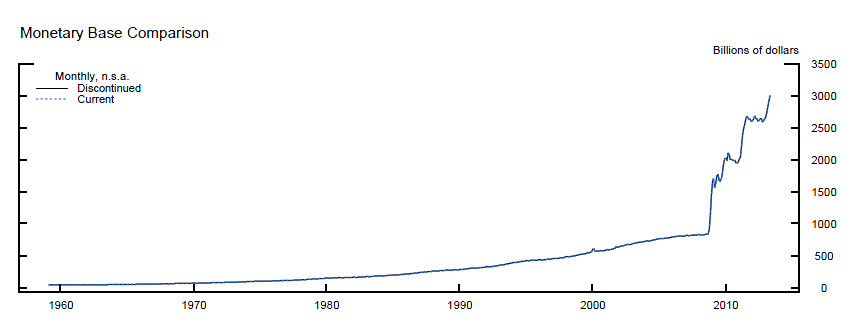How does the U.S. Government borrow money?
Here’s where the Government is different from individual people and businesses. When the Government borrows money, it doesn’t go to the bank and apply for a loan. It "issues debt." This means the Government sells Treasury marketable securities such as Treasury bills, notes, bonds and Treasury inflation-protected securities (TIPS) to other federal government agencies, individuals, businesses, state and local governments, as well as people, businesses and governments from other countries. Savings bonds are sold to individuals, corporations, associations, public and private organizations, fiduciaries, and other entities.
Here is how Treasury securities - such as savings bonds - generally work. People lend money to the Government so it can pay its bills. Over time, the Government gives that money, plus a bit extra, back to those people as payment for using the borrowed money. That extra money is "interest."
This is how the U.S. system of debt works:
The U.S. Treasury issues or creates the debt.
The Bureau of the Fiscal Service manages the Government’s debt. That means it keeps records, takes care of selling the debt, and handles paying back people who loaned the Government money.
The U.S. Treasury and the Bureau of the Fiscal Service do not decide how the money is spent. The legislative branch of Government (Congress) decides how the money is spent.
There is a maximum amount of debt the Government can have. This is known as the “debt ceiling.” To raise that amount, the U.S. Treasury must get Congress to approve a new and higher limit.






 Reply With Quote
Reply With Quote




 [leave me out of these republicrat morons] 'given the bankers the ability to create money at will [or DESTROY money at will] and lend it at interest [to whomever they want and at what price (interest rate) they want] BUT THEY ALSO HAVE FORE-KNOWLEDGE OF FUTURE MONETARY CONDITIONS WHICH GIVES THEM ONE HUGE ADVANTAGE IN 'DERIVATIVE$' MARKETS (legalized, rigged gambling scheme...and the hou$e takes a big 'cut'!!]...
[leave me out of these republicrat morons] 'given the bankers the ability to create money at will [or DESTROY money at will] and lend it at interest [to whomever they want and at what price (interest rate) they want] BUT THEY ALSO HAVE FORE-KNOWLEDGE OF FUTURE MONETARY CONDITIONS WHICH GIVES THEM ONE HUGE ADVANTAGE IN 'DERIVATIVE$' MARKETS (legalized, rigged gambling scheme...and the hou$e takes a big 'cut'!!]... ...[insight hint for newbies to 'monetary realism': ...the $coreboard has been rigged in favor of the $ecret $quirrels and their favorites for a long looooooooooooong time..and it is they who will out-bid you in the 'free
...[insight hint for newbies to 'monetary realism': ...the $coreboard has been rigged in favor of the $ecret $quirrels and their favorites for a long looooooooooooong time..and it is they who will out-bid you in the 'free 

Connect With Us